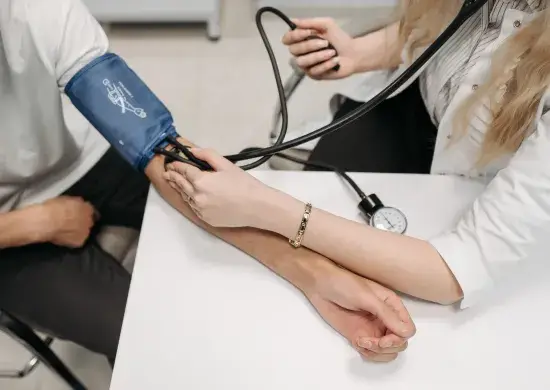

Over half of our bodies are made up of water, so is it any surprise that the amount of water you drink plays a key role in regulating your cardiovascular system? Your body is always seeking balance, and chronic dehydration can lead to several side effects, one of which is the increased chance of high blood pressure.
What is high blood pressure?
High blood pressure, or hypertension, affects 1 in 3 adults in the UK, though many won’t know they have it. High blood pressure isn’t often diagnosed because it rarely displays any noticeable symptoms, meaning that people don’t get themselves tested for it as often as they should.
However, though high blood pressure rarely has visible symptoms, the extra strain constantly put on your blood vessels and organs can increase your risk of suffering from a number of serious and sometimes fatal conditions, such as a stroke, heart attack, or kidney disease.
What is the connection between blood pressure and dehydration?
So, what does staying hydrated have to do with blood pressure? Hydration is essential to our bodily functions and plays a crucial role in the control of our cardiovascular system. You may be wondering, can dehydration cause high blood pressure? Dehydration leads to reduced blood volume, which means that the body compensates for this by retaining more sodium. As an effect, your body begins to close up capillaries, which puts more pressure on the open capillaries and arteries and therefore causes your blood pressure to rise.
Can drinking more water lower blood pressure?
If you are dehydrated, then consuming the recommended 6-8 glasses of water a day will certainly be beneficial for you. However, it’s also important that you don’t go overboard and give your body time to adapt to your new water-drinking habits.
If you’ve suffered from high blood pressure for a long time due to dehydration, then a sudden spike in water intake could place increased strain on your kidneys and digestive system, so if you’re unsure about the best way to go about reducing your blood pressure safely, you should consult your doctor.
In conclusion, there are definitely links between dehydration and blood pressure, so it’s definitely a good idea to keep yourself hydrated.
This article was originally featured on Edgar’s Water blog.